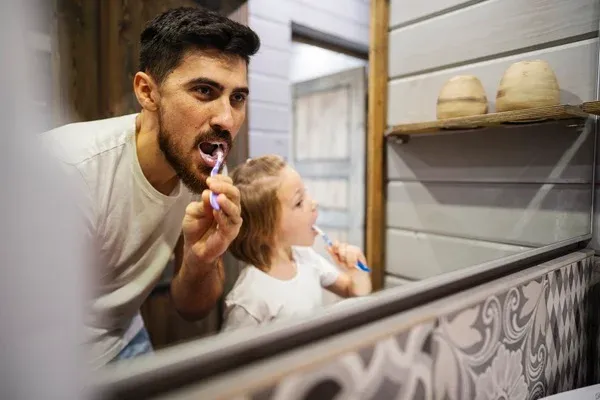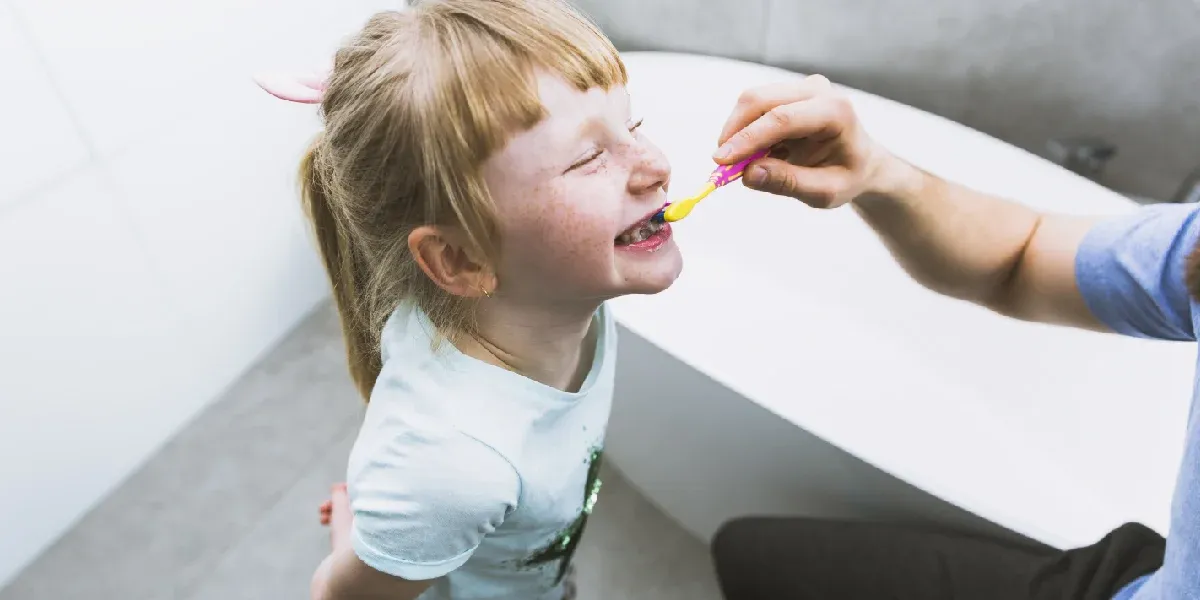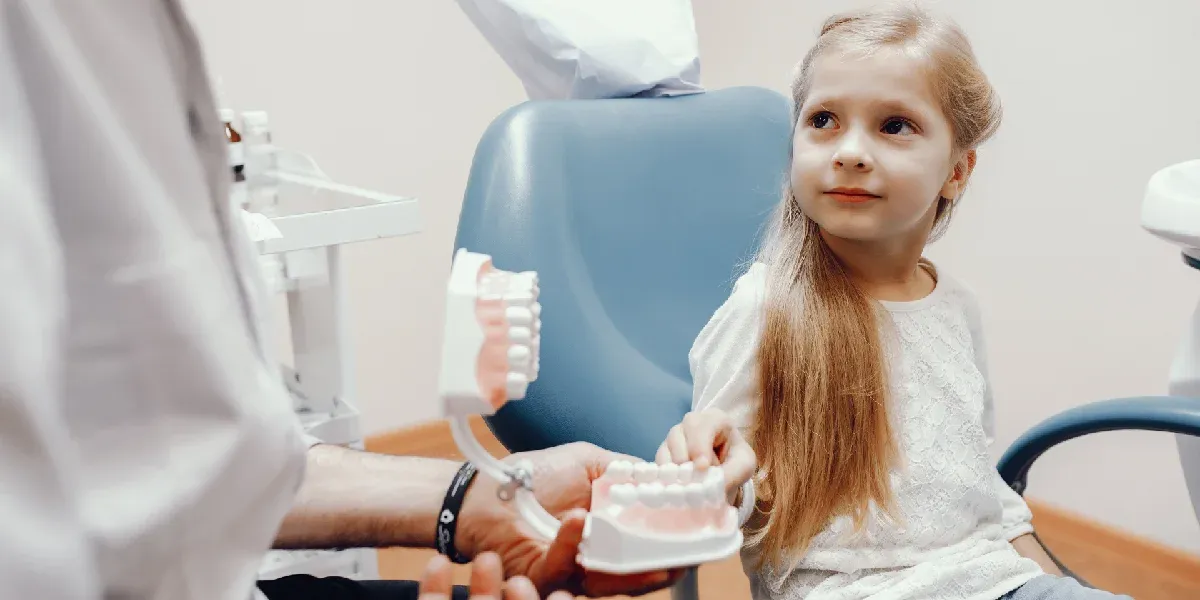
Promoting Good Oral Hygiene Habits in Children - Educating and Empowering Parents
Laying the Foundation for Lifelong Dental Health
Good dental health starts at home, and as parents, you play a critical role in instilling effective oral hygiene habits in your children from a young age. In the United States, where dental health is a crucial part of overall well-being, teaching children how to care for their teeth is as important as teaching them healthy eating or good manners.
This blog explores the fundamental practices necessary for maintaining good oral health. It offers practical advice on how you, as a parent, can make dental care an enjoyable part of your child's daily routine.
The Basics of Good Oral Hygiene for Children
Teaching your child to care for their teeth is a fundamental skill that sets the stage for healthy oral habits throughout their lives.
Starting early can help establish a routine that your child can follow into adulthood and prevent issues like pediatric tooth decay. Incorporating these basic practices into your child's daily routine helps instill a sense of responsibility and pride in their dental care, setting them up for a lifetime of healthy smiles.
Brushing and Flossing
Encourage your child to brush twice daily with fluoride toothpaste and floss daily. These simple steps are the cornerstone of good oral hygiene for kids.
Regular Dental Check-ups
Visiting a children's dentist ensures the early discovery of any potential issues. These visits are also great opportunities for your child to learn about dental care from a professional.
Role of Parents in Modeling Good Habits
Your approach to dental care sets a powerful example for your children. When they see you prioritizing your own oral hygiene, they are more likely to adopt these healthy practices themselves.
Lead by Example
Let your child see you brushing and flossing regularly. This demonstrates that oral hygiene is essential at every age and encourages them to follow suit.

Stay Consistent
Establishing a routine is crucial. Try to brush and floss at the same times each day and ensure your child does the same. Consistency helps turn these actions into habits as natural as eating or sleeping.
Visit the Dentist Together
If possible, schedule your dental check-ups concurrently with your child's. Visiting the dentist together can make the process less intimidating and help your child feel more comfortable and confident about their dental visits.
Strategies for Implementing and Maintaining Good Oral Habits
Establishing and maintaining healthy oral hygiene habits in children requires consistency and creativity. Here are some practical strategies to help parents in this important endeavor:
- Create a Routine: Build oral hygiene into your child's daily routine at set times, such as after breakfast and before bedtime. Consistency helps turn these actions into lifelong habits.
- Use Fun Tools: Invest in toothbrushes that light up or play music, and use toothpaste with flavors that are children's favorite fruits. Fun tools can make brushing something children look forward to.
- Reward Good Behavior: Positive reinforcement can work wonders. Consider setting up a reward chart where children can earn stickers for brushing and flossing. They could get a reward after achieving a specific number, like choosing a movie to watch or a family game night.
- Educate Through Storytelling: Use stories or videos featuring characters discussing why caring for their teeth is important and how they do it. Children learn well through narratives and can better understand the reasons behind oral hygiene.
- Address Fears and Anxiety: If your child is anxious about dental visits or resistant to oral care routines, discuss these fears openly. Validate their feelings and gradually introduce them to dental care activities in a non-threatening way at home before moving into the dentist's office.
Educational Tools and Resources
Equipping parents with the right tools can make teaching oral hygiene more manageable and enjoyable. Here are some effective resources and tips for making dental health education engaging for children:
Interactive Books and Apps
Numerous books and apps designed specifically for children make learning about dental care fun. These resources often include interactive stories or games that teach children about brushing, flossing, and what to expect at the dentist.
Informative Videos
Short, animated videos are another great way to grab your child's attention. These can visually explain the importance of dental health in a way that's easy for children to understand and remember.
Demonstration Tools
Many dentists recommend using models of teeth and toothbrushes to show proper brushing and flossing techniques. You can find these at many pediatric dental offices or online.
Regular Updates from Your Dentist
Stay connected with your family dentist for the latest tips and advice on children's dental health. They can provide personalized recommendations based on your child's age and dental history.
When you incorporate these tools into your routine, you help make dental health a fun part of your child's daily life, laying the groundwork for healthy habits that last a lifetime.
Solving Common Oral Hygiene Challenges for Kids
Even with the best intentions, teaching children to maintain good oral hygiene can sometimes be challenging. Here are some common issues parents face and effective strategies to overcome them:
Resistance to Brushing and Flossing
Many children resist brushing and flossing because they find it boring or uncomfortable. To combat this, try making it a game or a challenge. Use toothbrushes that feature their favorite characters or play a favorite song to time their brushing.
Fear of the Dentist
Dental anxiety is common in children. Help alleviate this fear by role-playing dentist visits at home, reading books about visiting the dentist, or letting them choose a small reward after the appointment. Positive reinforcement can change their perception over time.
Managing Sweets and Snacks
It's hard to keep kids away from sweets, which can contribute to tooth decay. Encourage healthy alternatives that they enjoy, and keep sugary treats as special rewards rather than daily snacks. Also, involve them in shopping and let them pick healthy options, which can make them more excited to eat them.

Inconsistent Routines
Busy family schedules can disrupt dental hygiene routines. Set alarms or reminders on your phone for brushing and flossing times, or link them to another consistent part of your routine, like bath time or bedtime stories.
Addressing these challenges with patience and creativity allows you to help your child develop a positive attitude toward dental care, making it easier for them to maintain good oral hygiene habits.
Empowering Parents for a Healthier Future
Empowering parents with the right knowledge and tools is essential for fostering good oral hygiene habits in children. As a parent, your involvement doesn't just help prevent dental issues; it builds a foundation for lifelong health and confidence. By taking an active role in your child's dental care, you teach them that taking care of their teeth is a crucial part of taking care of their overall health.
Remember, the habits you instill in your children today will guide them for years. Continue to educate yourself, utilize engaging tools, and seek support from dental professionals when needed. Your efforts will make a significant difference in your child's dental health and their attitude toward it.
Let's create a future where every child embraces their dental care enthusiastically and confidently!
Contact your kids' dentist in Stockton, Dr. Sajjad Rizvi, D.D.S. at Happy Kids Dental, to know more about promoting good oral hygiene habits in children - educating and empowering parents.
Resource:
A Dentist For Kids: Pediatric Dentist Vs General Dentist
*This media/content or any other on this website does not prescribe, recommend, or prevent any treatment or procedure. Therefore, we highly recommend that you get the advice of a qualified dentist or other medical practitioners regarding your specific dental condition*
Subscribe To Our Newsletter
Get Updates And Learn From The Best


